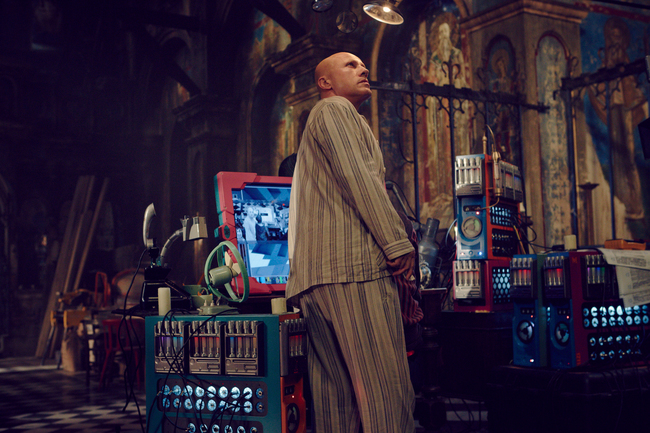Review: The Zero Theorem
Directed by Terry Gilliam • 2013 • 107 min
In The Zero Theorem, Christoph Waltz plays Qohen Leth, a reclusive, middle-aged man trying to make sense of a future that is far too chaotic, colourful, and youthful for him. Working for the mysterious Mancom corporation, he is a number cruncher. What this means is comically unclear - Qohen describes working with “esoteric data.” Tasked with cracking the Zero Theorem, Qohen embarks on a mission to prove that everything amounts to zero. That the world and everything in it is for naught, as the universe will end as it started, as nothingness.
The film explores a number of Gilliam’s usual interests: the eccentric hermit, the old vs. the new, the endless tediousness of bureaucracy. Mostly, The Zero Theorem captures a critical moment in one man’s mid-life crisis. Qohen searches desperately for meaning, and he struggles against a society that has left him behind. Seeking to prove that life is meaningless, he inevitably sinks deeper into despair. As such, the film largely fails. It’s hard to see this narrative as anything more than an old man griping about the modern world, with kids listening to iPods and carrying their tablets everywhere they go in a city plastered with 24-hour video advertizements. This isn’t even a particularly clever extrapolation, rather a dull, superficial reflection of the way things are.
Gilliam has always favoured excess to prove his points, but perhaps the point suddenly seems irrelevant in The Zero Theorem. Or worse, offensive. Qohen’s plight is, in many ways, based in his frustration over not having enough control in his life. His need for control, while understandable and common to any mid-life crisis narrative, reeks of entitlement. This is particularly pronounced in his interactions with Bainsley (Mélanie Thierry), his beautiful, witty, and charming neighbour. Bainsley is inexplicably as infatuated with Qohen as he is with her, and she so willingly accepts his entitlement that, in one especially uncomfortable scene, she actually apologizes to Qohen after he forces himself on her. Qohen self-righteously looks down on her, even as he desires her. This middle-aged male sexual fantasy is as problematic as it is mundane.
The Zero Theorem is certainly not without merit. The parts that work actually work quite well. As with Brazil, Gilliam constructs an entirely absurd professional environment, where a superficial ethos of fun barely masks the dark underbelly of an oppressive corporate panopticon. The symbolism and style of Qohen’s home is both powerful and cheeky. Having gone prematurely bald, he lives in a dilapidated old church, wandering around in drab cloaks. He is a techno-monk, an ascetic recluse looking for something to believe in. This symbolism is not entirely consistent, as Qohen’s faith is frankly atheistic. The film uses these contradictions to point to the impossibility of finding balance in a future of extremes. No position is convincing or even reasonable in Gilliam’s future world. If Qohen abhors the youthful attitudes of tomorrow, his own alternative lifestyle is no better. His aversion to any foods with “discernable flavours” is indicative of his unreasonably obtuse nature.
While not especially memorable, The Zero Theorem fits interestingly into Gilliam’s body of work, particularly as compared to Brazil‘s treatment of a similarly frustrating future. That film was infamously plagued by studio meddling, stifling Gilliam’s intentions. One can only hope that The Zero Theorem met a similar fate and that this is not a sign of the director’s move towards watered down revisions of his past films.
